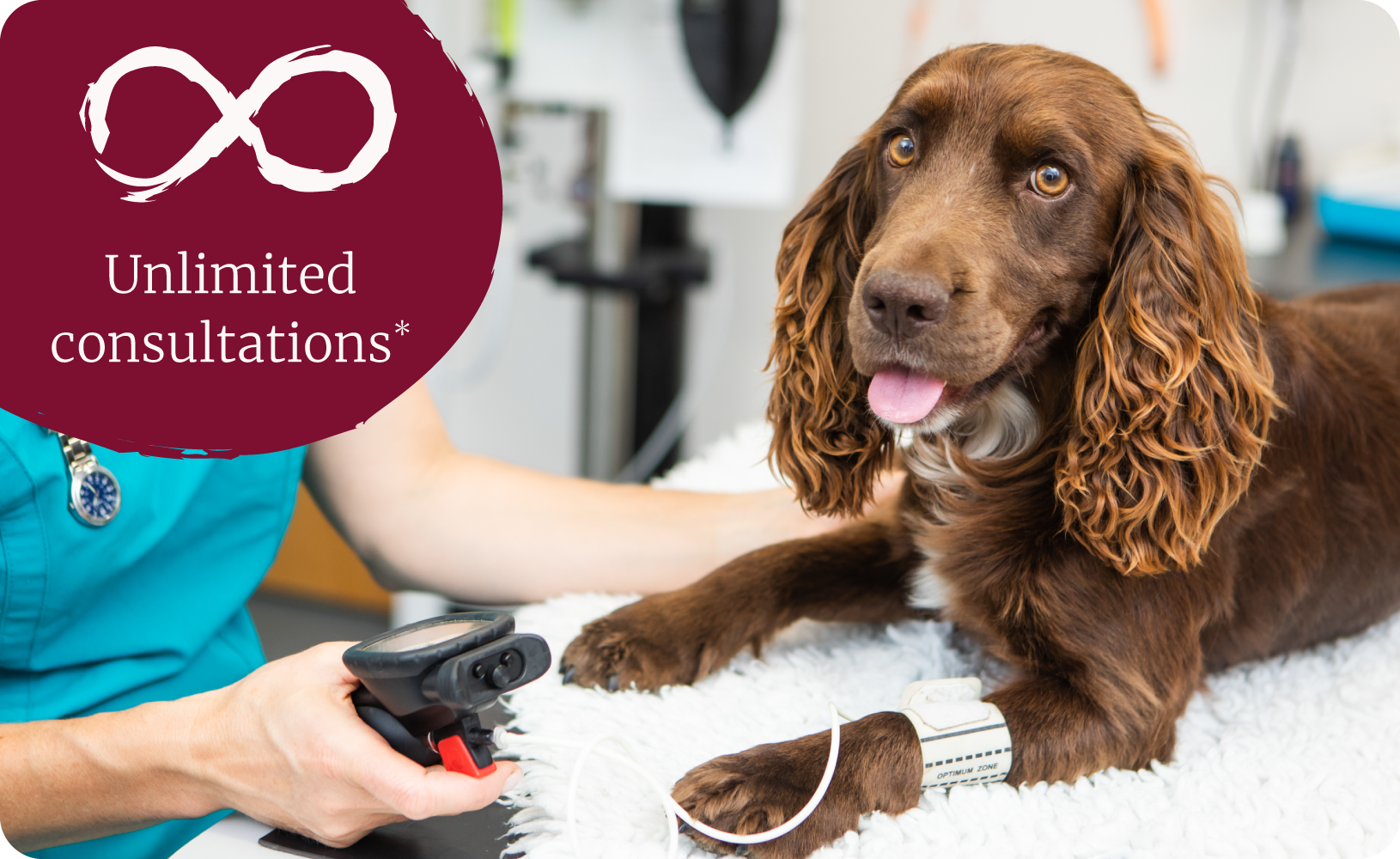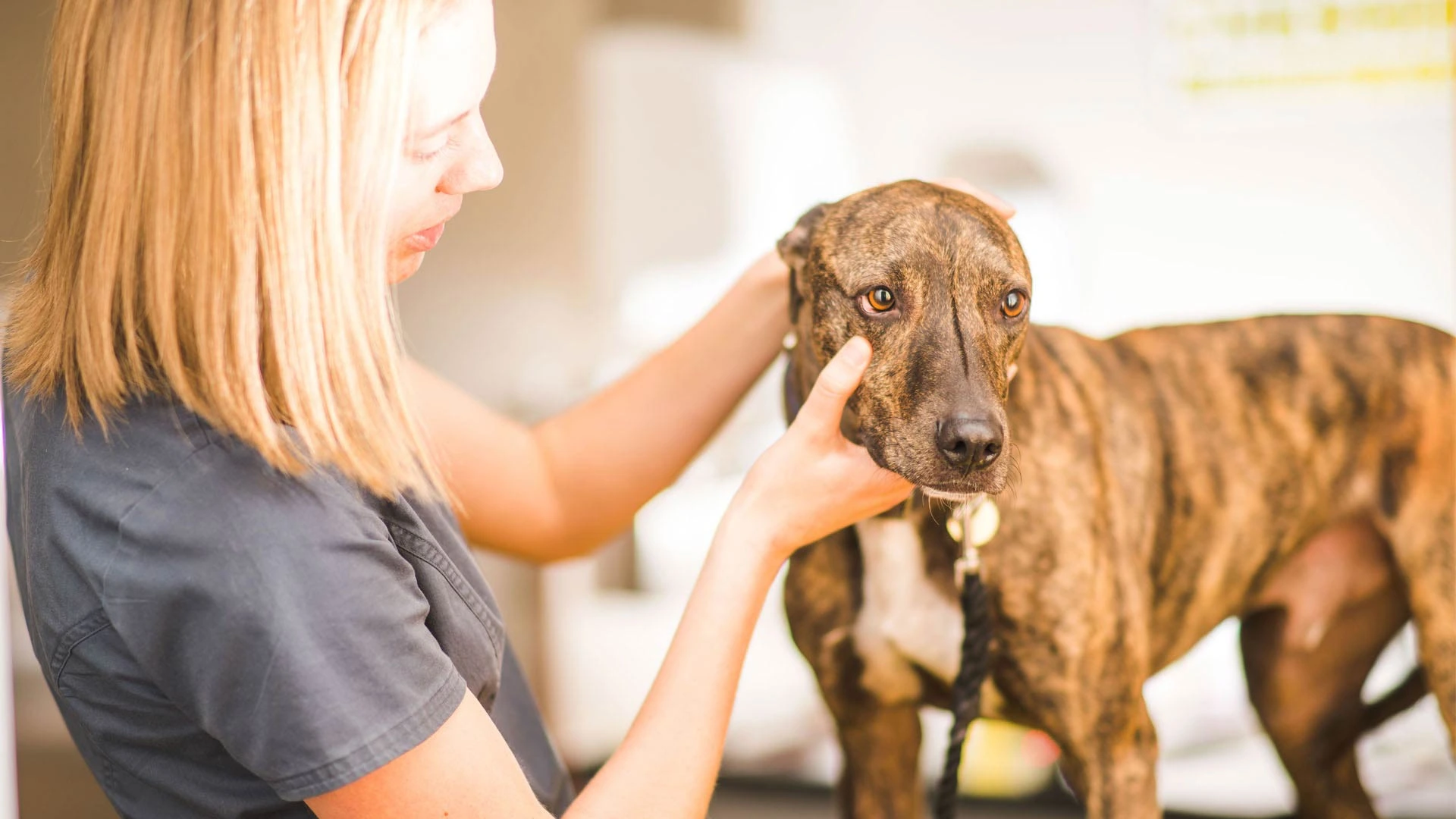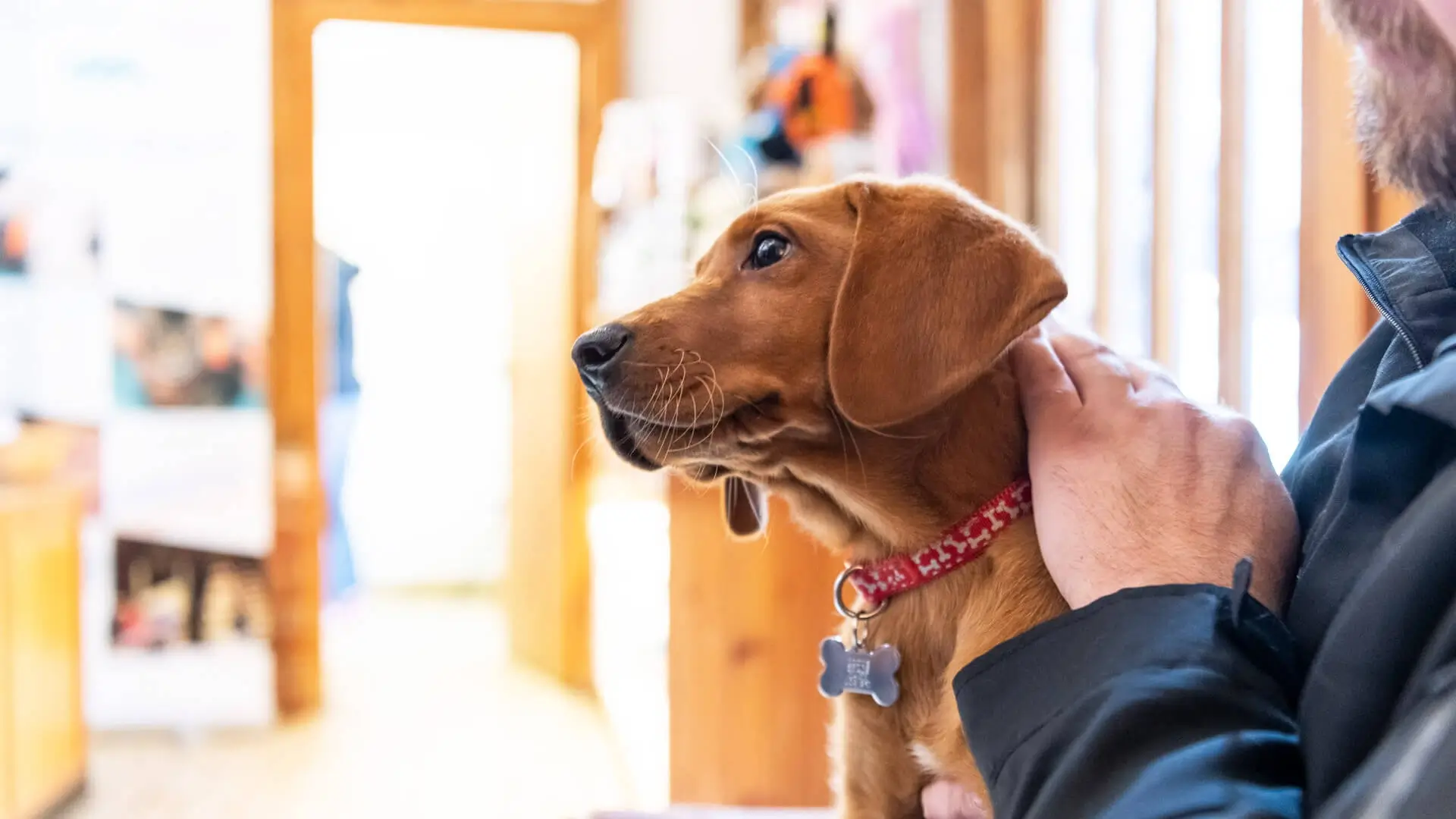Have you heard about out new Plus Plans? They include:
- Unlimited consultations †
- All the benefits of our Essential Plan
- 24/7 access to an online vet ‡
At Aran Vet Clinic, we provide top veterinary care for your pets in and around Llangefni. Book an appointment online 24/7 or contact our vet team
Register Pet
Book appointment
Pet Health Club®
Order medication
Pay my bill
Contact us

Have you heard about out new Plus Plans? They include:

At Aran Vet Clinic in Llangefni, we provide comprehensive care for cats, dogs, and small animals. Our services include:
Lovely place to take your pets when they aren't feeling well or just need a check up. Fantastic, knowledgeable staff who care about the animals they see.
24/11/2024
Georgina Gregory -Thornham
This veterinary practice is OUTSTANDING. We have moved away from the area and six years later I still miss the care we had from this excellent vets. If our cats needed attention a quick phone call and we’d always be seen the same day sometimes in the same hour! The staff are so friendly and very knowledgeable. They put the pets first. They are brilliant. 🐈🐈⬛xx
01/11/2024
Jon Edwards
Aran Vet practice, fantastic first experience for me, Myself and my little puppy's we were made to feel comfortable as we could be. All the staff are amazing thank you so much.
06/10/2024
STEPHEN RICHARD GREGG
Excellent. Warm friendly staff. Professional, which is nice when you're trying to place your panic in proper order. We had difficulty on a visit and a boisterous young Lab wounded in action. However, we did witness what was very obviously a 'regular visitor' treated with no more or less great care and courtesy. Our 'local' practices all have varying reputations for money grabbing and even some questionable 'attitudes'. Our badlad was, we felt, well and thoroughly checked over, serviced, then pronounced Fit For Further Flight. We/ he, were not rushed at all. In a nutshell...if you're in trouble, I wouldn't hesitate. I can see why folk will consider travelling silly distance to attend this practice. Guys...fyi, Ed was visibly relieved by your actions, which is more critical than I could ever be. Thank y'all.... again.
21/05/2024
grassblade2
Lovely vet clinic, they took such great care of our rabbits, their prices are very fair and the staff were phenomenal throughout our bunnies time there. We felt they cared about our rabbits welfare just as much as we do and that was a really nice feeling! 10/10 recommend
30/04/2024
Riley Lou
We welcome all sorts of pets from the everyday to the not-your-everyday...
Companion Animals
The practice cares for companion animals such as cats, dogs, rabbits, guinea pigs, ferrets and hamsters.
Rabbit Friendly
Practices with Rabbit Friendly status cater specifically for the needs of rabbits and other small animals. They will provide specialist knowledge based on the needs of your small animal.
Alice Kier
Clinical Director
Clara Lopez
Veterinary Surgeon
Ceri Stewart
Veterinary Surgeon
Claire Mellor
Veterinary Surgeon
Abigail Evans
Registered Veterinary Nurse
Ceri Morris
Registered Veterinary Nurse
Naomi Harries
Registered Veterinary Nurse
Jennifer Button
Animal Nursing Assistant
| Sunday | Closed |
|---|---|
| Monday | 8:00am - 7:00pm |
| Tuesday | 8:00am - 7:00pm |
| Wednesday | 8:00am - 7:00pm |
| Thursday | 8:00am - 7:00pm |
| Friday | 8:00am - 7:00pm |
| Saturday | 8:30am - 12:00pm |
Unit 3 The Cefni Centre, Bryn Cefni Business Park, Llangefni, Anglesey, LL77 7XA
Aran Vet Clinic, Llangefni
Unit 3 The Cefni Centre, Bryn Cefni Business Park, Llangefni, Anglesey, LL77 7XA
Our dedicated pet care team is ready to assist you. Contact us for information on how we can support your pet's needs.

* Average annualised saving based on full uptake of core benefits, including full course of vaccinations of the cat, dog or rabbit Plan compared against average cost for non-Plan customers of equivalent items across 94%of participating PHC clinics calculated on [03/04/24]. Saving will vary per species per year based on vaccination status. T&Cs apply, see here.
† Specialist, referral, or out-of-hours consultations, are not included. Consultation fees associated with administering injections for chronic conditions are not included but discounted for PHC Plus members. Fair usage policy and terms and conditions apply. See Terms of Sale here
‡ 24/7 access to an online vet provided by Pawsquad
We work alongside a dedicated Accident and Emergency vets called Vets Now, they look after your pet out of normal surgery hours.
Vets Now provide care overnight, at weekends and on Bank Holidays.
Learn more on the Vets Now website.
Accident
Deep wounds, injuries and significant bleeding
Swallowing objects or choking
Eating toxic/harmful substances (e.g. raisins, rat poison or antifreeze)
Collapse
Serious trauma (e.g. car accidents)
Behaviours
Breathing difficulties/seizure and fitting
Inability to urinate (especially in male cats)
Severe vomiting or diarrhoea (five or more episodes in a 12 hour period or if blood is present)
Inability to stand or dragging legs
Swollen abdomen or retching (especially large dogs)
Others
Eye problems
Struggling to give birth (such as green, bloody or brown discharge)